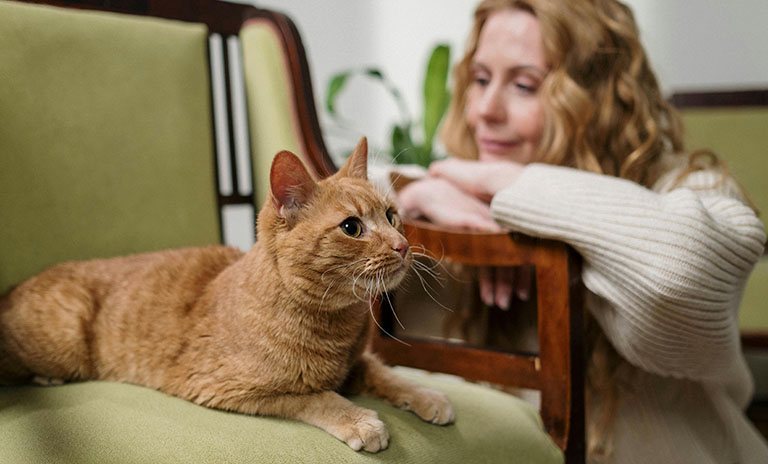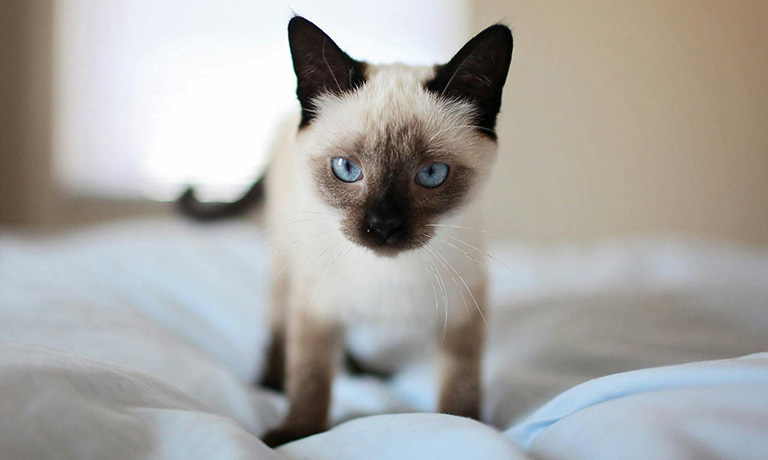With 73 distinct cat breeds to explore, finding your perfect feline companion can be an exciting adventure. This blog delves into everything from hypoallergenic breeds and high-energy playmates to family-friendly cats and delightful mixed-breeds. You’ll also find expert tips on selecting an ethical breeder and learn why adopting from a shelter could be your best choice. Dive in to satisfy your inner cat lover, uncover intriguing breed details, and make an informed decision to find the ideal cat for your home.
Hypoallergenic Cat Breeds
While all cats produce allergens in their fur, saliva, and urine, some breeds generate lower levels of the proteins that trigger allergies. The primary allergen responsible for cat allergy symptoms is Fel d 1, a protein found in a cat’s skin and saliva. Although no cat breed is entirely hypoallergenic, certain breeds are known for producing less Fel d 1, which might make them a better fit for individuals who experience sneezing and itching around cats. These breeds are often referred to as hypoallergenic cats.
Common hypoallergenic cat breeds:
- Sphynx
- Cornish Rex
- Devon Rex
- Javanese
- Oriental shorthair
- Siamese
- Siberian
- Russian Blue
- Balinese
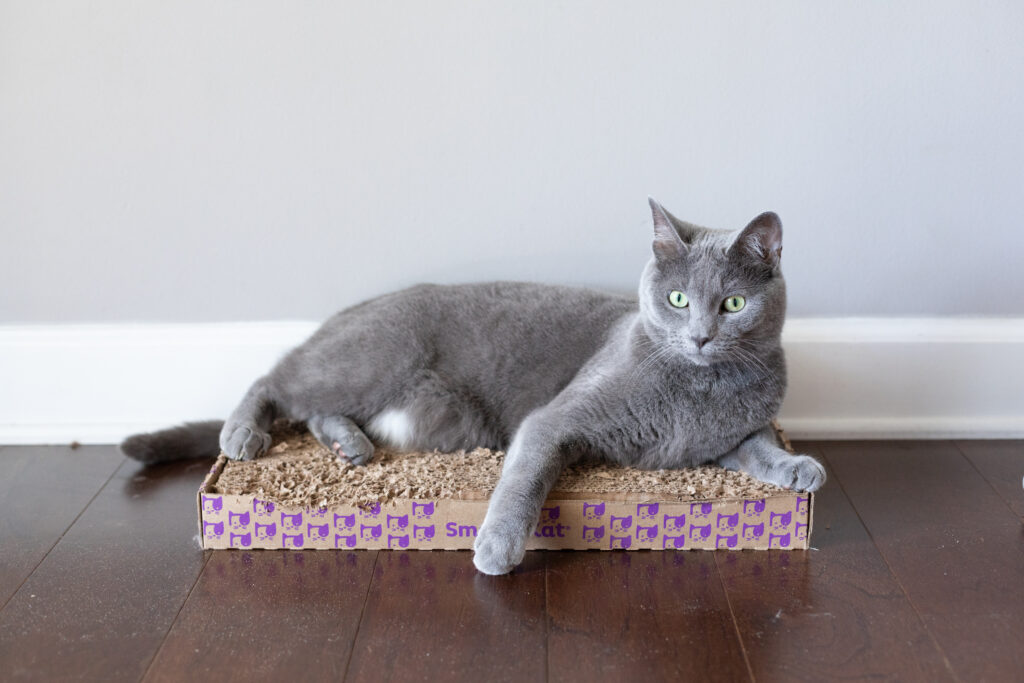
High-Energy Cat Breeds
A high-energy cat may not suit everyone, but for those who enjoy active engagement, playtime, and have a lot of energy themselves, a lively cat can be a perfect match. These cats require plenty of stimulation, attention, and interactive play. Without enough activity, they can become bored and may resort to destructive behaviors, such as scratching furniture or knocking over objects. Additionally, because cats are naturally nocturnal, a high-energy cat could disrupt their owner’s sleep if allowed to nap all day and store up their energy for the night.
Keeping Your High-Energy Cat Engaged
To prevent destruction and disturbed sleep, it’s important not to let your cat sleep the day away. Keep them engaged with playtime and attention during daylight hours. Stimulate their mind with activities like food puzzle toys, climbing towers or scavenger hunts. Scratching posts and laser pointer games are also excellent ways to keep them entertained. Leave these toys accessible while you’re at work, so your cat can stay active throughout the day, reducing the chances of them being overly energetic or destructive when you return home.
Whether shopping at a pet store or browsing online, there are plenty of toys available to keep your cat busy. Alternatively, you can create your own DIY cat toys for a personalized touch.
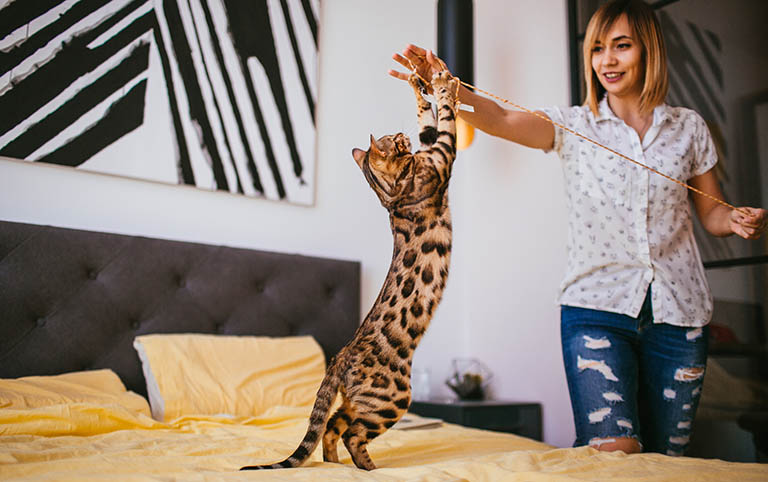
Breeds known for their high energy and need for stimulation:
- Abyssinian
- Balinese
- Bengal
- Bombay
- Burmense
- Cornish Rex
- Devon Rex
- Egyptian Mau
- Japanese Bobtail
- Munchkin
- Ocicat
- Oriental Shorthair
- Savannah
- Siamese
- Siberian
- Sphynx
- Toyger

Best Cat Breeds for Families with Kids
When choosing a cat for a family with children, consider its temperament, energy level, and attention needs. The ideal cat should be friendly, patient, and tolerant, able to handle the unpredictability of kids without stress. Active, playful breeds are great for engaging children, while calm breeds suit more relaxed households. Affectionate cats that enjoy human interaction can form strong bonds with children as they grow.
For families with babies or toddlers, a quiet, low-maintenance cat that enjoys snuggling may be ideal. As kids become more hands-on, sturdier and patient breeds are better suited. In busy households, adaptable and easygoing cats are a great fit, especially those unbothered by noise or activity.
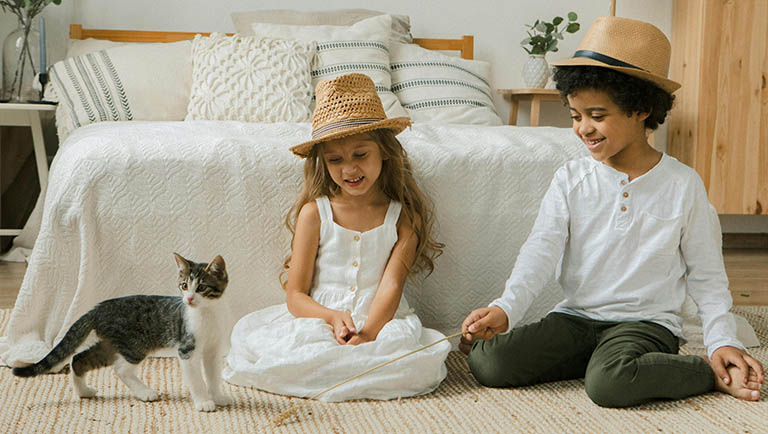
Breeds known for their gentle and patient nature with children:
- Ragdoll
- Maine Coon
- Burmese
- American Shorthair
- Siamese
- Birman
- Abyssian
- Norweign Forest Cat
- Siberian
- Scottish Fold
- Himinlayn
- Manx
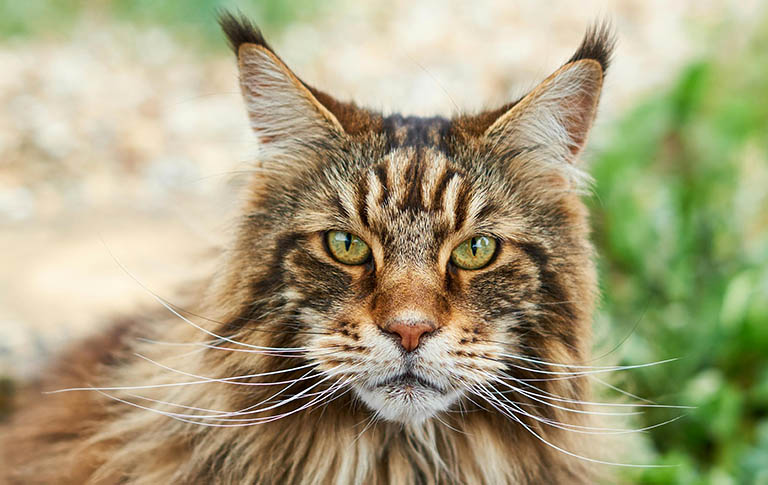
Most Common Cat Breed in the USA
The Domestic Shorthair, often referred to as the “mutt” of the cat world, is distinct from the American Shorthair despite the similarity in names. Known for their mixed and often unknown lineage, Domestic Shorthairs come in a wide range of physical appearances. While they can vary greatly, they are typically medium-sized with round faces, short, sleek coats, and can display any combination of colors and patterns.Frequently abbreviated as DSH, these cats are among the most popular and beloved pets in the USA.
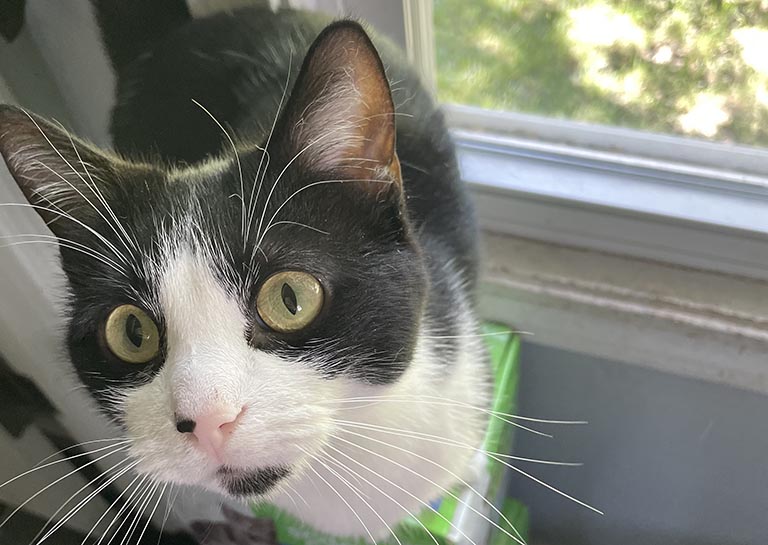
What Makes Domestic Shorthairs so Popular?
Domestic Shorthairs are known for being friendly, playful, and sociable. They generally get along well with children and other pets, making them a great fit for family homes. Their intelligence and curiosity make them keen observers and quick learners. Thanks to their short coat, grooming is minimal—weekly brushing is usually enough to keep their fur healthy and reduce shedding.
Since Domestic Shorthairs shed less than some other breeds, they can be a better fit for households concerned about allergens. Their diverse gene pool also makes them less prone to genetic diseases, contributing to their overall good health. Easygoing and adaptable, Domestic Shorthairs thrive in a variety of environments, making them a popular choice for many families.
Mixed Breeds
Mixed-breed cats, often called “moggies,” differ from purebreds due to their diverse lineage, blending traits from multiple breeds. Unlike purebreds, which are bred for specific traits, mixed-breed cats display a wide range of appearances and behaviors. This genetic diversity often leads to better overall health, as they are less prone to breed-specific issues.
Mixed-breed cats inherit a variety of traits, making each one unique in appearance, coat, color, and personality. While cats don’t have a “doodle” equivalent like dogs, hybrids like the Bengal— a mix of domestic and Asian leopard cats—offer a blend of wild and domestic traits similar to what doodles represent in the dog world.
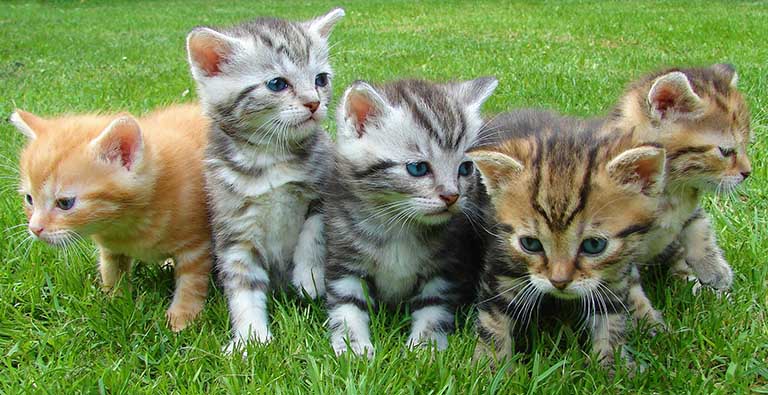
Cat Breeders
Finding an ethical breeder can be challenging, especially given the profitability of the pet industry. Many backyard breeders and unethical operations attempt to deceive potential buyers, often selling cats that are not the breed they claim, have hidden health issues, or were raised in inhumane conditions. To ensure you are purchasing a cat from an ethical breeder, it’s crucial to conduct thorough research, ask the right questions, and stay vigilant. Ethical breeders are known for certain practices and standards, which help ensure the health and well-being of their animals.
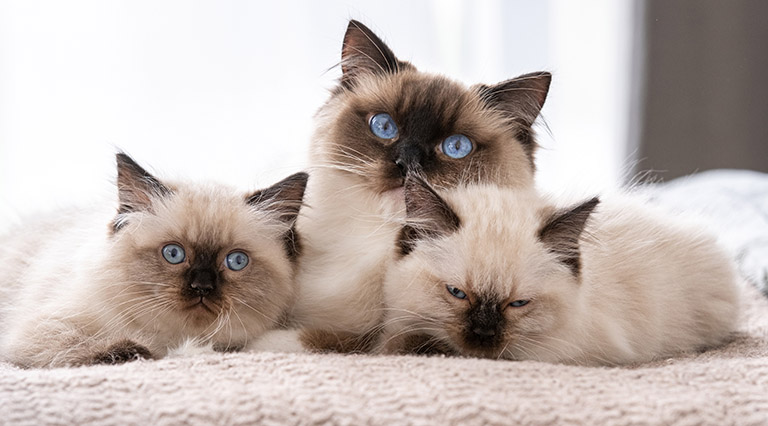
- Pedigree: An ethical breeder provides a pedigree, certifying the kitten’s breed and genealogy (4-5 generations). This document should be issued by a reputable registry like TICA, CFA, or FIFé. It ensures the breeder isn’t engaging in inbreeding, which you can verify on the registry’s website.
- Kitten Separation: Kittens should stay with their mother until at least 12 weeks old. Early separation can cause behavioral issues, so a breeder who releases kittens before this time is not reputable.
- Health Records: Kittens should come with a health record showing they’ve been vaccinated, treated for parasites, and microchipped. They should have received core vaccines like FHV, FCV, FPV, and, where necessary, rabies.
- Genetic Testing: The parents of the kittens should be tested for genetic diseases to ensure the health of future litters.
- Contract: The breeder should provide a contract that protects both parties, including a clause preventing the kitten from being resold or surrendered. If you can’t keep the kitten, the breeder should help rehome it or take it back.
- Spay/Neuter Clause: Kittens should be neutered or spayed before adoption, or the contract should require it to prevent irresponsible breeding.
If having a purebred cat isn’t a priority, adopting from a shelter is an excellent choice. Shelter cats are typically spayed or neutered, given full health checks, and you can ask the staff about their temperament and personality to ensure they’re a good fit for you and your family.
Choosing the Right Cat Breed for You
Finding the ideal cat involves more than just selecting a breed; it requires understanding the specific needs and characteristics that will best suit your home and family. Whether you choose a hypoallergenic breed, an energetic playmate, or a loving mixed-breed, each type of cat offers unique benefits.
Choosing an ethical breeder or adopting from a shelter ensures that you’re bringing home a healthy, well-cared-for pet. With the right information and considerations, you can make a choice that brings joy and companionship to your life while supporting ethical practices in pet ownership.
